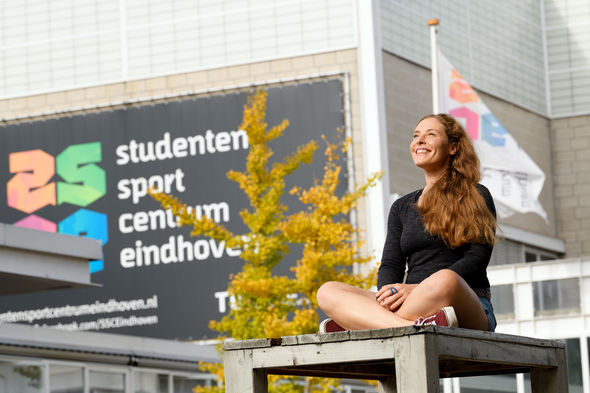The TU/e Listening Line against loneliness in times of corona
As the Dutch king said in his speech on TV, the loneliness virus is now one of the greatest challenges we face. Where nothing can be done about corona (yet), we can do something against loneliness, says Lara Hofstra, internationalization coordinator at the Student Sports Centre. Together with student of applied psychology Henk Vervoort, she wants to set up a ‘TU/e Listening Line’.
The TU/e Listening Line will be an online place where students and staff can chat with or call a volunteer, about whatever topic they wish. This can also be done anonymously, if preferred. At the moment they are busy gathering the materials within the TU/e to set things up. The URL will be shared as soon as it is arranged. “It just has to be a simple page that shows the times when a volunteer is available in the chat and where people can click to chat. There will also be an option to call. It doesn't have to cost too much time or look super fancy; as long as we can quickly offer help to students and staff who feel lonely at this moment,” Hofstra says. "And I would also like to involve other organizations, such as TINT, Cosmos and Fontys."
The danger of isolation
“I know from my experience at the Student Sports Centre that people come there every day because it helps them to, for example, get rid of stress or frustrations. But the sports centre is also an important place for social gatherings,” Hofstra says. “Now that is no longer possible and people are more easily isolated, especially internationals who often came here alone and live by themselves. But the Listening Line isn't just for internationals, Hofstra emphasizes. “Anyone who needs a listening ear can use it. It has only been two weeks since the measures are in effect, how will this feel in a month? We just all need human contact - and sports. Always, but definitely under these circumstances.”
More volunteers wanted
Vervoort helps Hofstra with the guidelines, setting up the program and guiding the volunteers. “We notice that there is already quite some interest in becoming a volunteer for the project,” Hofstra adds. "I already know ten potentials." But more volunteers are always welcome to properly support the large TU/e community. Hofstra and Vervoort would like to turn to you directly and ask you: would you chat with a volunteer on the Listening Line? Or would you like to volunteer yourself? Let Lara Hofstra know if you would like to work as a volunteer. You will also find more information about this further below.
“We have drawn up guidelines for recruiting volunteers. We take this serious because it is important that those people - of course - are good listeners but are also well-informed and know when a problem is too complex and the caller needs to be referred. But this job also brings a lot of satisfaction to the volunteer, you really feel that you can do something important for someone else and that gives you a good feeling,” Hofstra says.
Want to become a volunteer?
Hofstra and Vervoort are still looking for volunteers for the Listening Line. If you want to become a volunteer, the following characteristics are important:
- Available for at least 10 hours a week
- Good level of English
- No phone phobia
- Able to deal with negative or sometimes depressive stories
- Able to bring positive energy into a conversation
- Can provide a listening ear
- Able to refer people to the right organizations in time if necessary, using the available protocols
Does this appeal to you and do you want to know more or already want to sign up? Send Lara an email.



Discussion